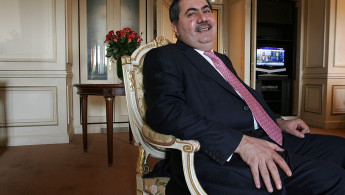Iraq court temporarily suspends Hoshyar Zebari from presidential race citing corruption charges
Iraq's Supreme Court said Sunday it had temporarily suspended Hoshyar Zebari, a frontrunner for the presidency, on the eve of parliament's vote on the position, citing years-old corruption charges against him.
The court said it had received a complaint from lawmakers that Zebari's candidacy was "unconstitutional" because of the graft claims, adding that his suspension was "temporary" while the court considers the case.
Zebari was one of two main contenders for the largely ceremonial post of president, which the 329-member parliament was to vote on on Monday.
The other favoured candidate for the presidency is the incumbent Barham Saleh.
Iraq's highest judicial body said the complainants consider that Zebari does not fulfil constitutional requirements that the head of state must have "a good reputation and integrity".
The court cited his 2016 dismissal from the post of finance minister by parliament "over charges linked to financial and administrative corruption".
Public funds worth $1.8 million were allegedly diverted to pay for airline tickets for his personal security detail.
Zebari, 68, has always denied all corruption accusations.
The complaint also cited at least two other judicial cases linked to him, including when he was the country's long-time foreign minister after the fall of dictator Saddam Hussein in 2003.
The largest bloc in the Iraqi parliament, led by powerful Shia cleric Moqtada Sadr, announced Saturday a boycott of Monday's parliamentary session to elect the new president.
The bloc's parliamentary chief, Hassan al-Izari, told a news conference they will not attend the session, making a vote less likely, although technically a quorum could be reached.





 Follow the Middle East's top stories in English at The New Arab on Google News
Follow the Middle East's top stories in English at The New Arab on Google News


